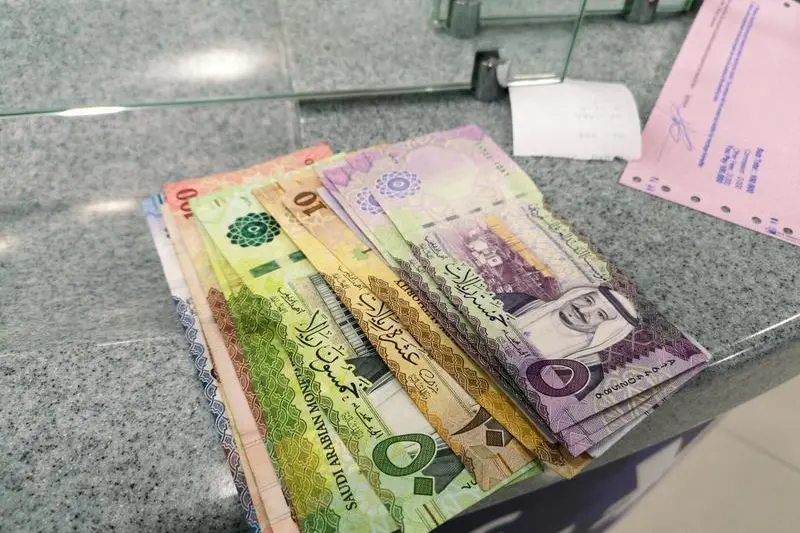PHOTO
LONDON- Saudi Arabia could see another $7 billion pour into its sovereign debt markets as investors prepare for the kingdom's bonds to be included in a key index starting this month, Bank of America Merrill Lynch (BAML) estimated.
JP Morgan told investors in September that Saudi Arabia and four other Gulf states would join its emerging market government bond indexes - key performance benchmarks used by international investors - in a move likely to lure billions of dollars of new foreign investment into their debt.
Sovereign and quasi-sovereign debt issuers from Saudi Arabia, Qatar, the United Arab Emirates, Bahrain and Kuwait - all members of the Gulf Cooperation Council (GCC) - will become eligible for the EMBI Global Diversified (EMBIGD), EMBI Global (EMBIG) and EURO-EMBIG indexes with securities being added in a phased entry between Jan. 31 and Sept. 30, 2019
Many funds had increased their exposure to Saudi Arabia, wrote BAML's Andrew McFarlane in a note to clients, somewhat reducing the potential for further buying.
"Nonetheless, feedback from investors suggests they have not yet reached the full weighting, whilst passive investors move in line with the benchmark, so should only start buying in the coming days," McFarlane wrote.
"Even if investors have added 50 percent of the required exposure (to go to marketweight), we estimates that would still leave some $6-7 billion of buying in (Saudi Arabia) which we think can squeeze spreads further."
Saudi Arabia's bonds still traded at a premium over similar rated credits such as Poland and Chile thanks to compensation for the country's high issuance and oil dependency risk, added BAML. Poland and Chile trade 37-54 basis points tighter.
"However, we still think there is space for this spread to compress, particularly on strong inclusion flows," they wrote.
Looking at Saudi issuance more widely, BAML estimated that lower-than-budgeted oil prices and sticky spending suggested a potentially large external borrowing need.
"At $70 per barrel, external borrowing through a combination of bonds, sukuk and loans could range between $22 billion and $33 billion in 2019," BAML estimated.
However, potential over-financing in 2018, privatisations and settlements in the wake of the country's sweeping anti-corruption probe could lower that figure, BAML added.
(Reporting by Karin Strohecker, editing by Ed Osmond) ((karin.strohecker@thomsonreuters.com; +442075427262; Reuters Messaging: karin.strohecker.reuters.com@reuters.net))





















